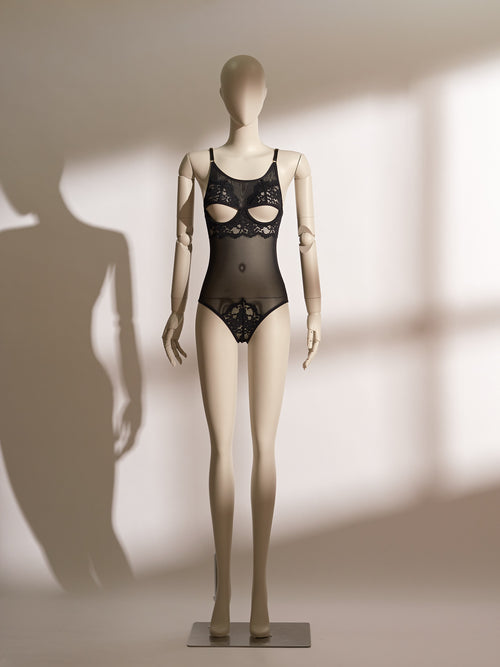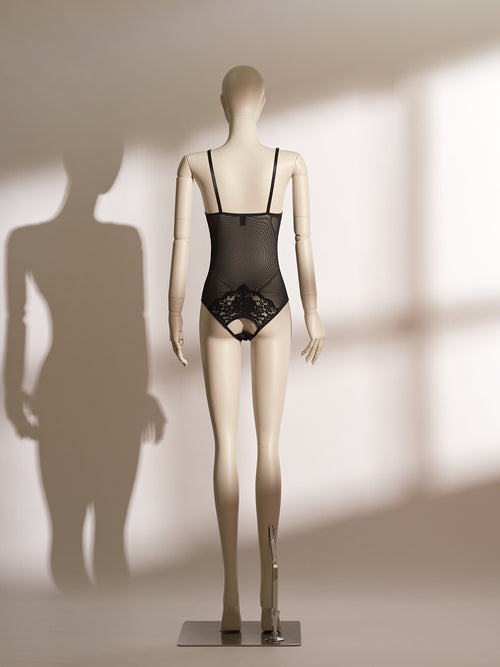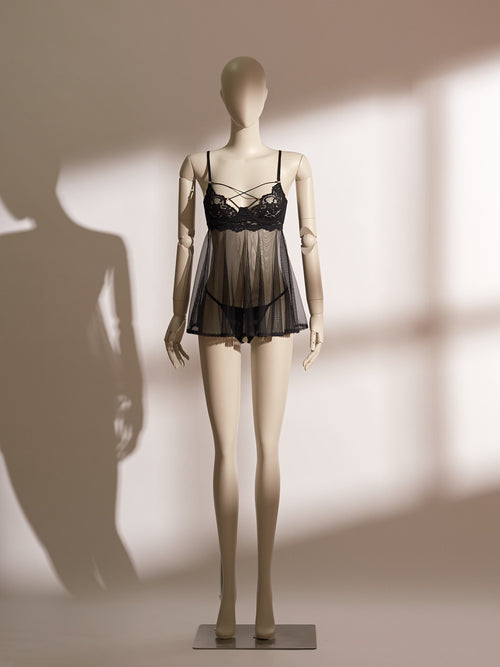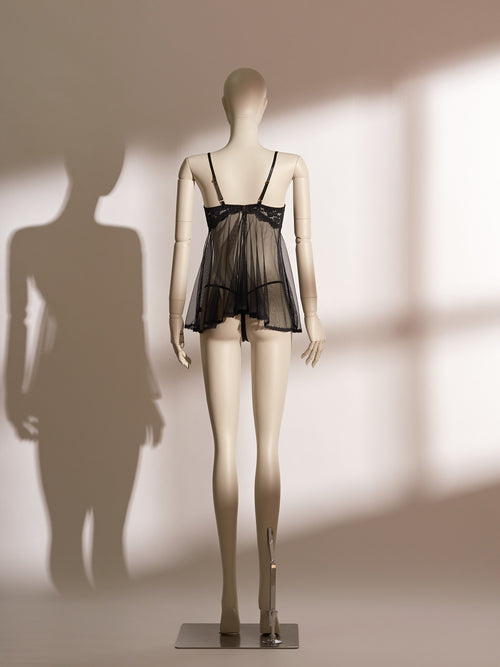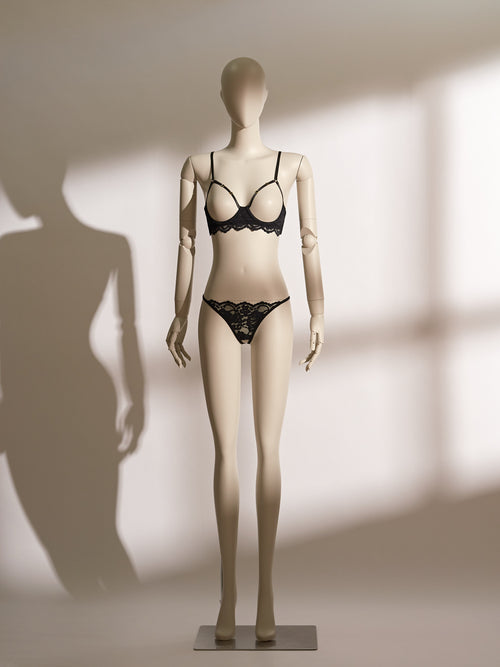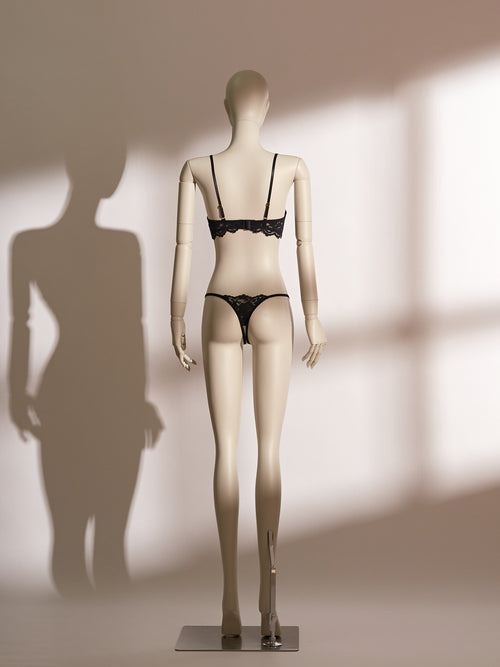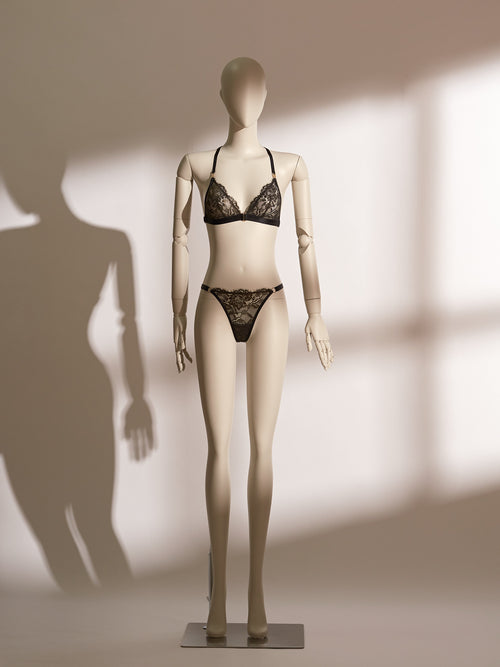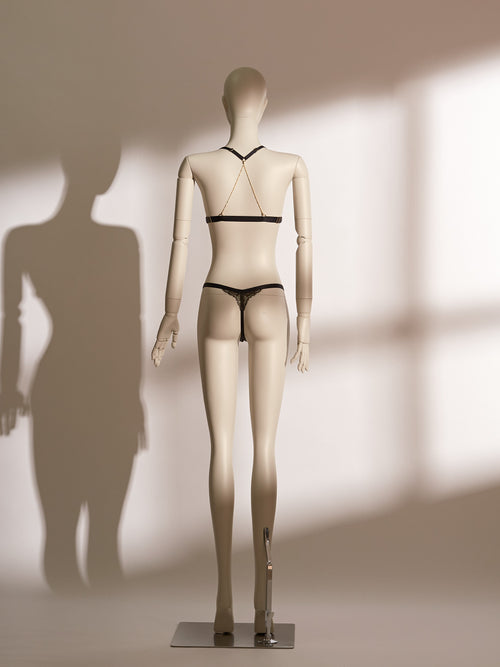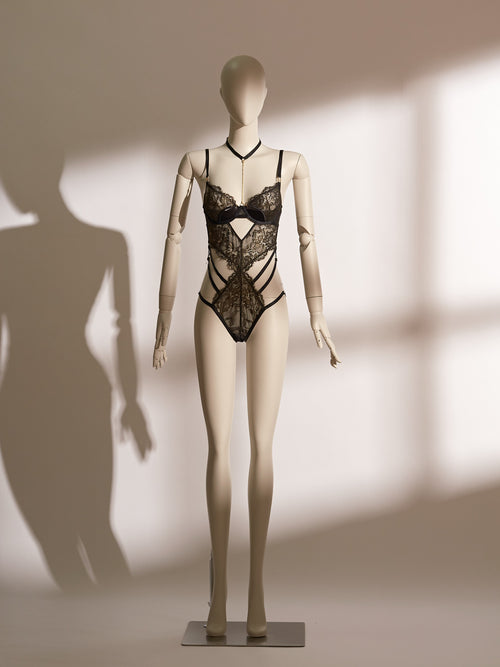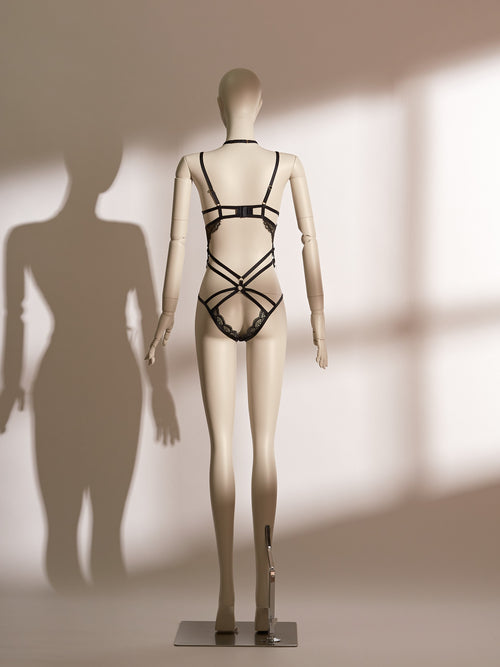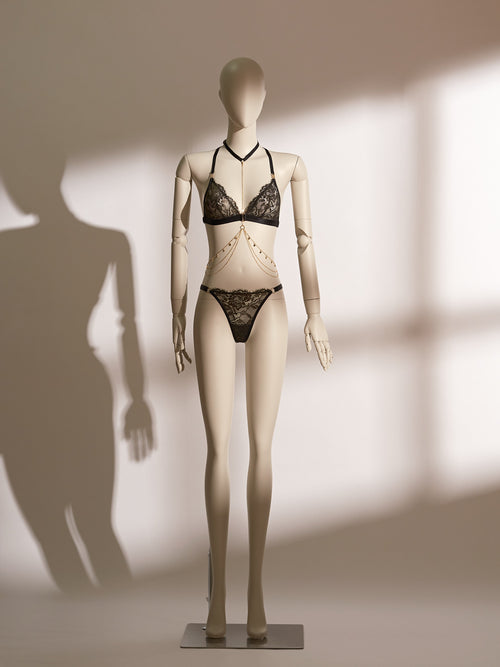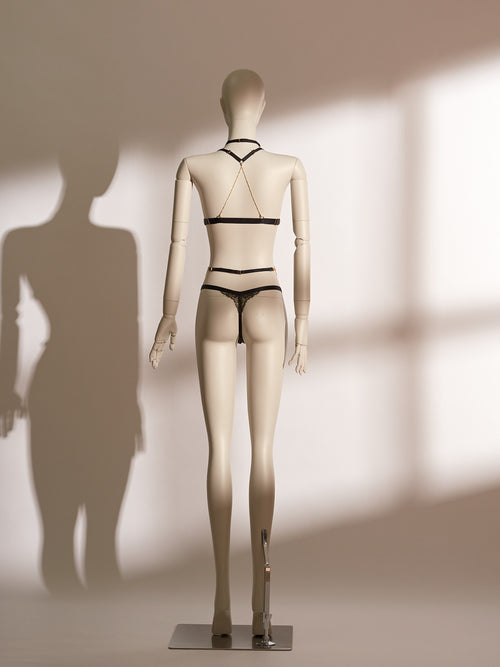Welcome to our store
In recent years, the fashion industry has become entangled in a complex web of morality, marketing, and consumer psychology. This phenomenon—often termed "morally blackmailing"—has particularly escalated within the context of sustainability, inclusion, diversity, and consumerism. While the intent behind these movements can be virtuous, the execution frequently devolves into performative gestures that lack genuine depth or lasting impact. At Mismuse, and through our seductive lingerie brand Pills N Poison, we have engaged deeply with these issues, contemplating not only their superficial presentations but also their fundamental implications.
In this exploration, we delve into the ethical paradoxes at play, how large and independent brands navigate these challenges differently, and our unique stance that positions authentic craftsmanship, human respect, and genuine ethical practice at the heart of true sustainability and morality.
Why Has the Fashion Industry Embraced Moral Rhetoric?
Today’s consumer demands have shifted significantly toward moral and ethical values, influenced by broader cultural conversations on identity, inclusivity, sustainability, and ethical consumerism. The industry has responded accordingly—not necessarily due to inherent moral conviction but largely because morality sells. Consumers, particularly younger demographics such as Gen Z and Millennials, increasingly equate brand values with personal values. As a result, visible virtue signaling has become as desirable as traditional status symbols like luxury labels and celebrity endorsements.
Yet, as seductive lingerie brands such as Victoria’s Secret, Calvin Klein, Savage X Fenty, and Agent Provocateur have demonstrated, larger brands can afford to deploy these strategies effortlessly, reaping extensive rewards without significant scrutiny of their deeper systemic impacts.
Superficial Ethics vs. Authentic Ethical Practices
A troubling pattern emerges within this dynamic: morality is easily performed but difficult to genuinely implement. Superficial ethics often take precedence over authentic practices because ethical language and symbols—such as a diverse model or eco-conscious packaging—are easily marketable. This approach allows brands to tap into consumer guilt and empowerment simultaneously:
- Moral guilt-tripping: "If you don’t support this cause, you’re part of the problem."
- Pseudo-empowerment: "Celebrate your natural beauty by purchasing this expensive bralette."
These tactics create a paradoxical relationship where brands position themselves as moral authorities, simultaneously validating and monetizing consumers' emotional experiences.
A revealing statistic from an internal survey by the Indie Intimates Alliance underscores this dilemma: 62% of independent lingerie brands feel pressured into ethical branding despite being ill-equipped to implement substantial sustainability or inclusivity initiatives.
Big Brand vs. Indie Brand: A Tale of Two Standards
Why do Victoria’s Secret or Savage X Fenty seductive lingerie advertisements saturate our feeds without scrutiny, while smaller independent brands face extraordinary barriers and frequent censorship? This discrepancy reveals an alarming double standard in ethical expectations. Big brands can afford high-profile diversity and sustainability initiatives, backed by substantial marketing budgets and legal teams. Independent brands, however, regularly encounter significant obstacles:
- Unfair platform censorship under vague policies (Instagram, for instance, faced criticism for algorithmically censoring body-positive campaigns, mistakenly labeling them as explicit (Forbes, 2022)).
- Limited financial resources to execute genuine sustainability measures.
- Increased pressure to engage in performative ethics without practical support.
These starkly contrasting conditions emphasize the unequal landscape that morally driven rhetoric has inadvertently created, often penalizing independent brands that lack the institutional power to navigate these constraints successfully.
Why Authentic Ethical Practices Must Respect Human Values
At Mismuse and Pills N Poison, we have consistently maintained that genuine ethical practices require more than merely “transparent sourcing” or “eco-friendly slogans.” True ethics involve comprehensive respect for human values and real investment in every stage of the fashion cycle—from raw materials to production, marketing, sales, and recycling.
Our family’s decades-long commitment to manufacturing excellence stems precisely from this philosophy. Rather than superficially claiming ethics, we actively embrace deep, research-driven practices, focusing on:
- Fabric Selection: Choosing fabrics that genuinely benefit consumers’ comfort and are simultaneously environmentally responsible.
- Worker Welfare: Ensuring manufacturing conditions enhance worker health, safety, and pride in craftsmanship.
- Process Efficiency: Minimizing waste, energy consumption, and pollution through meticulously optimized production methods.
These genuine efforts ensure that seductive lingerie from Pills N Poison is not merely aesthetically alluring but also ethically profound.
The True Morality of Manufacturing
Manufacturing is not simply a business process—it embodies the most fundamental ethics within fashion’s lifecycle. How we source, produce, and craft seductive lingerie directly impacts workers, consumers, and the environment. Merely reducing transport distance between factories and suppliers is a rational, cost-effective decision, not an act of extraordinary morality. Claiming such actions as morally exceptional trivializes genuine ethical standards and disrespectfully commodifies morality itself.
The real moral imperative lies in treating workers fairly, reducing true ecological harm, and delivering genuine quality. Such standards demand comprehensive understanding, substantial investment, and consistent commitment—qualities that our family has diligently nurtured through deep exploration and decades of dedication.
Market Rationality vs. Moral Symbolism
We fundamentally believe morality in business should derive from rational market practices, not imposed through emotional manipulation or superficial symbolism. History demonstrates that significant societal improvements—abolishing slavery, confronting racial discrimination, achieving broader economic equality—have arisen primarily from market-driven economic shifts, not merely from political gestures or symbolic actions. The transformative power of market forces has continuously created genuine change.
Our family’s extensive investment in lingerie manufacturing excellence aligns explicitly with this market-driven moral rationale. Ethical fashion, in this regard, emerges naturally from deeply rational business decisions rather than artificially moralistic campaigns.
How Pills N Poison Defines True Ethical Excellence
Pills N Poison’s seductive lingerie embodies genuine ethical principles through:
- Respect for Craftsmanship: Prioritizing skilled workers and artisanal talent.
- Authentic Sustainability: Engaging deeply with material science and production processes that genuinely minimize environmental harm.
- Human Dignity and Economic Rationality: Ensuring ethical business practices benefit everyone involved.
Unlike brands that superficially adopt morality to emotionally coerce consumer behaviors, Pills N Poison embeds genuine ethics at the heart of our products, practices, and philosophy.
Future Directions: Toward Genuine Ethical Commitments
Moving forward, the fashion industry must embrace authentic ethical practices embedded in deep human respect, economic rationality, and manufacturing excellence. Rather than morally blackmailing consumers, brands should adopt practices that genuinely empower workers, elevate craftsmanship, and genuinely benefit the environment and society.
At Mismuse and Pills N Poison, our commitment remains steadfast:
- Rejecting superficial morality.
- Embracing genuine market-driven ethics.
- Respecting and empowering every participant in our fashion ecosystem.
Conclusion: Authentic Ethical Lingerie—A Commitment Beyond Rhetoric
Ultimately, genuine ethical impact requires profound, practical commitments rather than symbolic marketing strategies. Real morality in fashion starts with manufacturing excellence, human respect, and market rationality. Pills N Poison's seductive lingerie isn't just beautiful—it's authentically ethical, empowering, and genuinely beneficial.
We invite our consumers and peers to join us on this meaningful journey toward genuine, market-driven ethical fashion practices.




